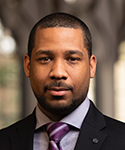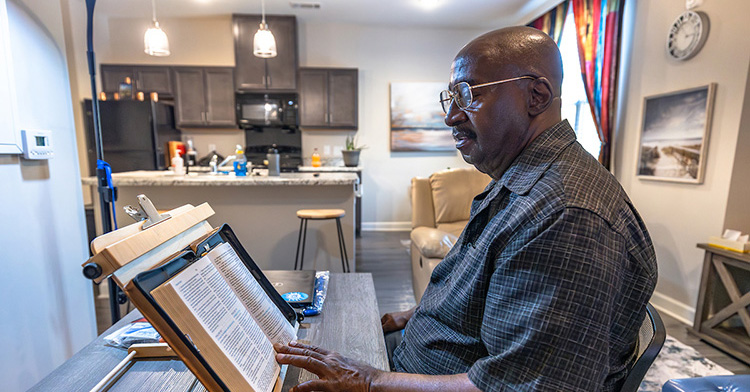“When there is war, business and governments rush in. Why should the church rush out?”
David Kasali is president of the Bilingual University of the Congo (more commonly known by its French initials UCBC), located in Beni, North Kivu province in the Democratic Republic of the Congo. We spoke during Duke’s Center for Reconciliation’s Summer Institute, where he was a faculty member. UCBC is only two years old and already has hundreds of students working away not just for professional accreditation, but to be Christ-shaped leaders in a country that’s seen too few of them.
I’d asked Kasali not only about his vision for the fledgling university, but also why he’d left his previous post to start it. He’d spent nine years as president of Nairobi Evangelical Graduate School of Theology (NEGST), one of the strongest post-graduate schools in all of Africa. On one hand, it made sense that as a native Congolese, he’d want to contribute to rebuilding his country after its decades-long civil war in which five million died. But on the other, wasn’t this a very risky project? Couldn’t he give everything to start a new university and then watch it vanish overnight in a new outbreak of fighting? His response was the quote that opened this post.
Notice our differing instincts. Mine: Institutions need a stable social order to survive. His: Unstable social orders can be made more stable with the presence of institutions. I wouldn’t bet against UCBC or its energetic and charismatic president. By the end of our conversation he was trying to convince me to spend some time guest teaching in the school’s journalism program.
Another university president who was also at the Summer Institute, Katho Bungishabaku, talked about the founding of his recently renamed school, Shalom University. At one time it was Bunia Theological Seminary, located in a town that had been decimated by the war. About 50,000 residents died in the fighting and 98 percent of the remaining population had fled. Among those who stayed were children from both warring tribes, and many of whom sought shelter in the seminary. As one tribe grew stronger, the school would take in the children of the other.
It just so happened that the two rebel armies were arrayed against one another with the school in between. And one rebel commander said, “I will not fight. We would destroy that school, which has saved our children.” The other commander also said, “I will not fight. We would destroy that school, which has saved our children.” Over 1300 children were saved as a result of the seminary’s willingness to offer them shelter, and the school changed its name to reflect Jesus’ gift of peace in which it was privileged to participate.
Bungishabaku has an impish grin that suggests a willingness to bring about holy mischief. Looking around at Duke Divinity School’s beautiful Westbrook building, where the Summer Institute was being held, he said Duke and similar schools don’t really need new buildings. But schools like Shalom do. As if sensing he should shift the venue in order to needle us further, he brought up a school in the US he had recently visited where a $250 million fundraising campaign had just been successfully completed. “Just give us 1 percent of that,” he said. “That’s all I’ll say.”
I’m struck that in the West, the one thing all Christians -- whether evangelical, liberal, Catholic or whatever else -- seem to agree on is that institutions are bad. That works because we’ve all had experiences in which we’ve seen individuals ground down. But it also works because we have strong institutions in this country. It’s easy for us to take them for granted, so we run them down habitually and fail to thank God for the gifts they bear to us.
In the DRC they have no such luxury. This is a country the size of western Europe with all of 50 miles of paved roads. Neither Bilingual University nor Shalom University is far from rebel armies still in the field. Neither is safe from further violence. Yet both offer hope for peace in the claim that a new generation of Congolese leaders is going to train as hard to build up society as others are to tear it down.
And whatever else Christians in the DRC might disdain, I’m betting strong, life-giving institutions are not among them.








